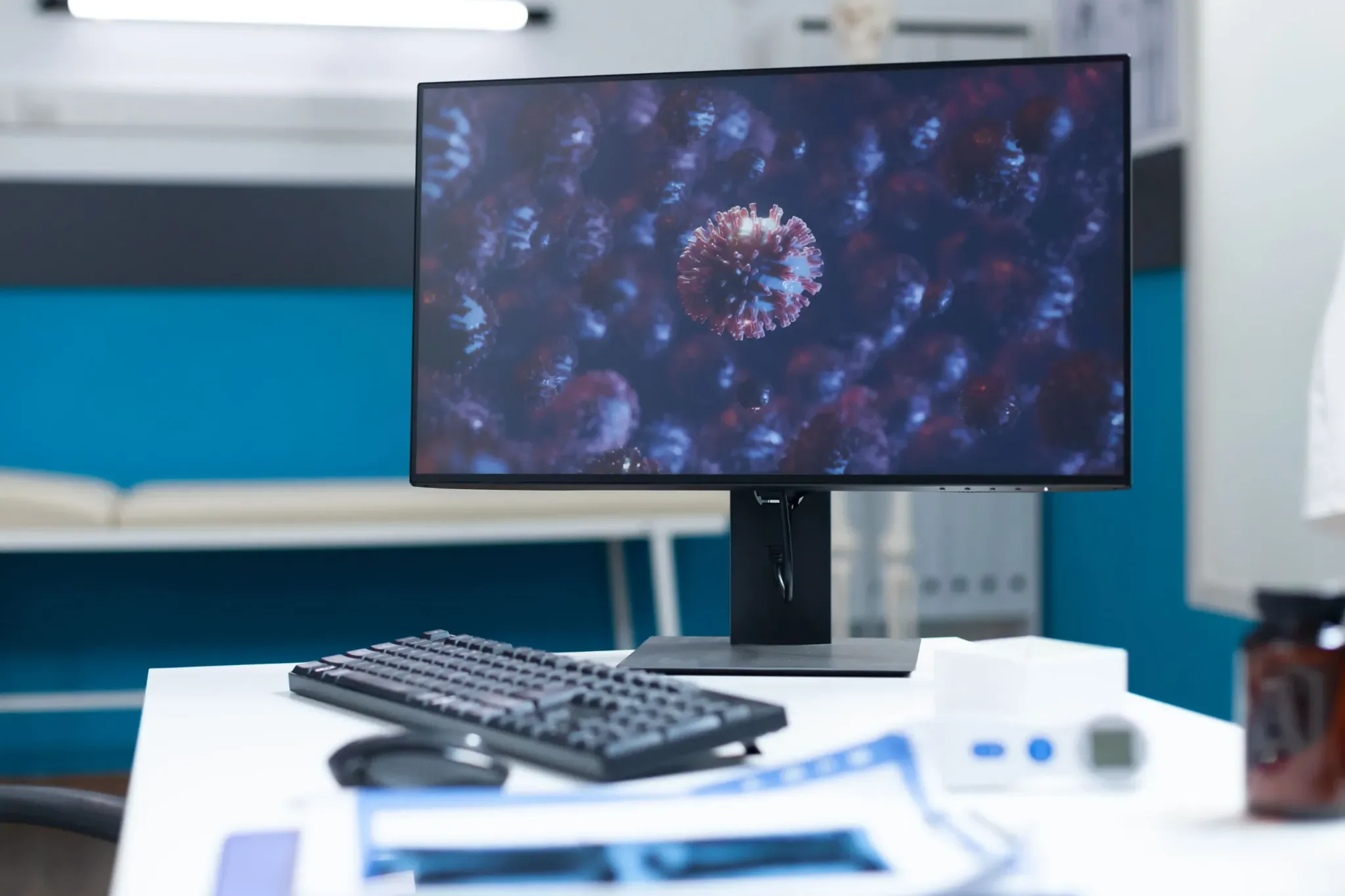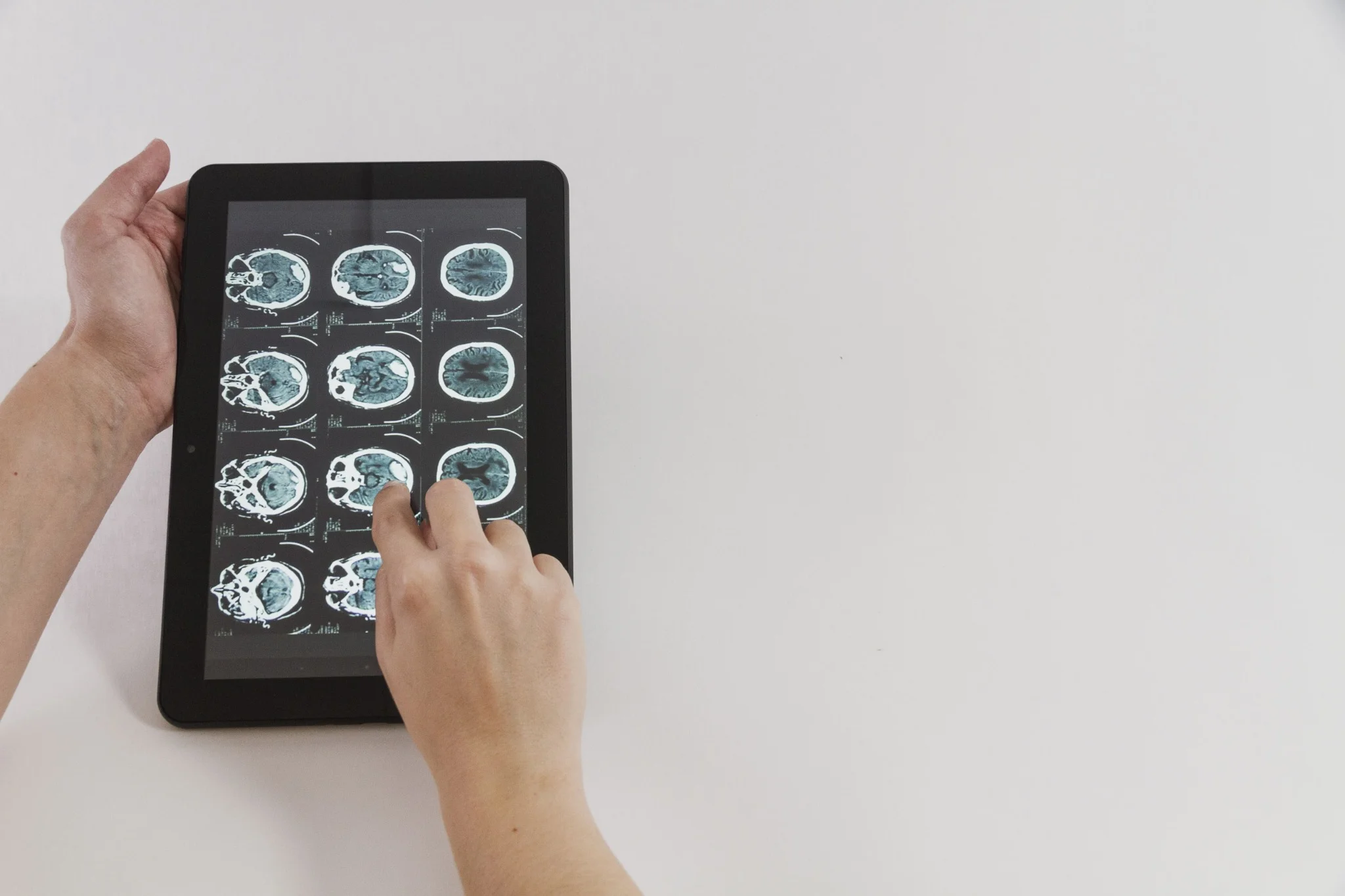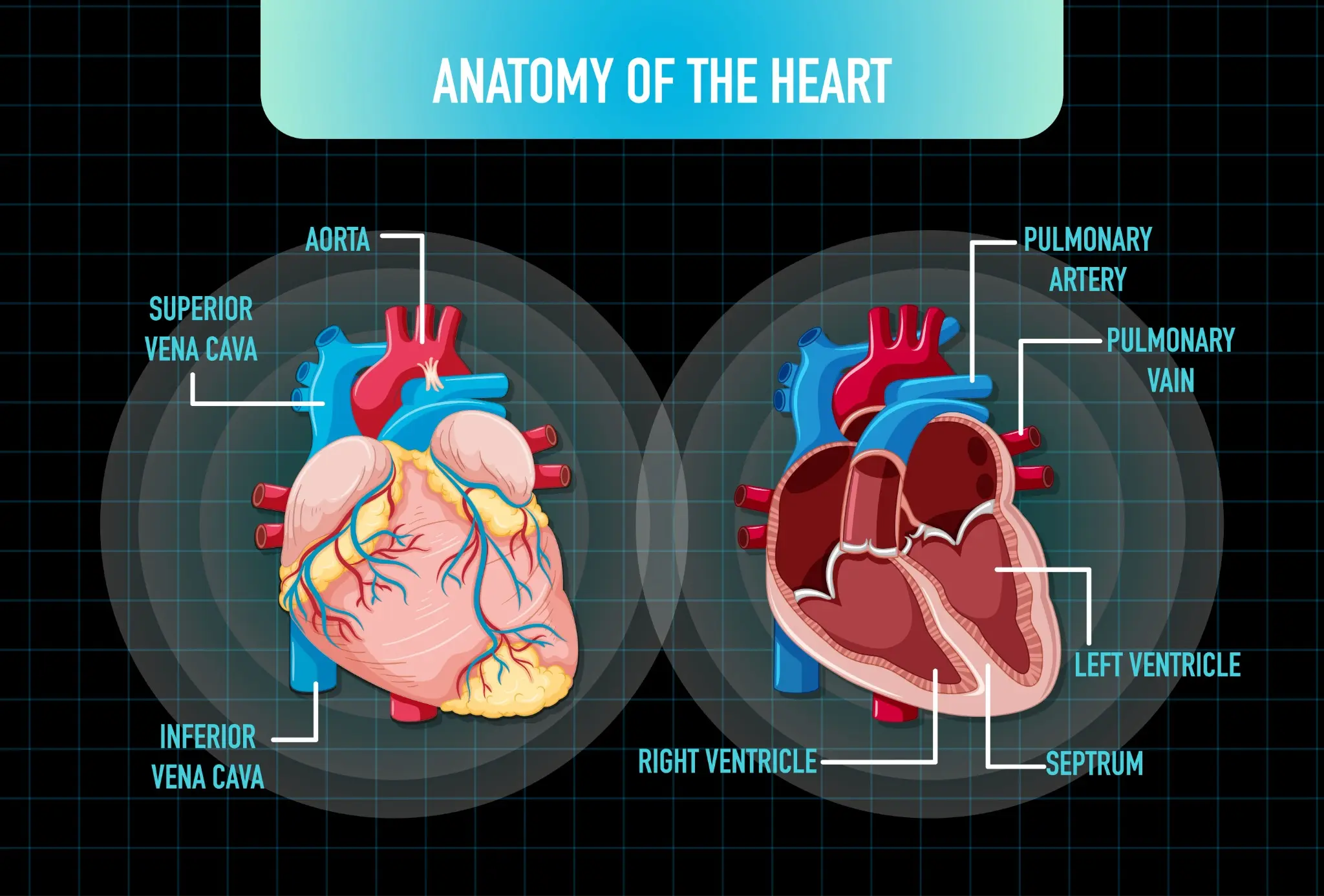Cardiac Test (Heart Screen)
Also known as: Cardiac Screen Test
Cardiac Screen Test Details in Brief
| Also Known As | Cardiac Screen Profile - 2, Cardiac Screen Test, Heart Profile Test |
|---|---|
| Purpose | Helps evaluate heart function and risk factors, aids in the early detection of cardiovascular disease |
| Preparation | Clinical History Required, Fasting Required |
| Fasting | Yes |
| Reporting Time | After 6 hours |
| Cost | 1,500 |
What Is a Cardiac Test (Heart Screen)?
A cardiac test, also known as a heart screen test, is a comprehensive panel of blood tests designed to evaluate your heart's health and assess your risk of developing cardiovascular disease. This test uses multiple biological samples, including blood (EDTA blood, serum, and fluoride plasma) and spot urine, to provide a complete picture of your cardiac health.
The test helps detect early signs of heart disease, monitors existing heart conditions, and identifies risk factors that could lead to serious cardiovascular events like heart attacks or strokes.
What Does the Cardiac Test (Heart Screen) Measure?
This cardiac screening panel measures several important markers to give you a complete picture of your heart health:
- Cholesterol levels are used to assess your risk of arterial blockages and heart disease.
- Cardiac enzymes (CPK and LDH) are used to detect heart muscle damage or stress.
- Liver function (SGOT AST) as it relates to overall metabolic health affecting the heart.
- Blood glucose levels are used to identify diabetes, a major risk factor for heart disease.
- Complete blood count to check for anaemia and other blood disorders that can strain the heart.
- Inflammatory markers (ESR) are used to detect inflammation that may affect cardiovascular health.
- Kidney function is assessed through urine analysis, as kidney health is closely linked to heart health.
Cardiac Test (Heart Screen): Who Needs It and Why It's Done
What Symptoms May Call for a Cardiac Test (Heart Screen)?
Your doctor may recommend this test if you experience symptoms that could indicate heart problems:
- Chest pain, tightness, or discomfort during activity or rest
- Shortness of breath, especially during physical exertion
- Unusual fatigue or weakness that doesn't improve with rest.
- Dizziness, lightheadedness, or fainting episodes
- Swelling in your legs, ankles, or feet
- Irregular heartbeat or palpitations
- Pain radiating to your arm, jaw, neck, or back
Who Should Get a Cardiac Test (Heart Screen)?
This test is recommended for several groups to ensure early detection and prevention of heart disease:
- Adults over 30 years as part of routine preventive health screening.
- People with a family history of heart disease, heart attacks, or strokes.
- Individuals with risk factors such as high blood pressure, diabetes, or obesity.
- Smokers or former smokers who need regular cardiovascular monitoring.
- Patients with symptoms suggesting possible heart problems.
- People on cardiac medications need to monitor treatment effectiveness.
- Those with sedentary lifestyles or high-stress occupations.
Why Is a Cardiac Test (Heart Screen) Done?
This test is performed to assess your overall cardiovascular risk, detect early signs of heart disease before symptoms appear, and monitor the effectiveness of treatments for existing heart conditions.
Importance of a Cardiac Test (Heart Screen)
The cardiac test plays a crucial role in preventive healthcare by identifying heart disease risk factors before serious complications develop. This comprehensive screening helps doctors detect conditions, such as high cholesterol, diabetes, and inflammation, that silently damage your heart over time.
Early detection through this test allows timely interventions, lifestyle modifications, and treatments. It can significantly reduce your risk of heart attacks, strokes, and other cardiovascular events. The test also helps monitor your response to heart medications and track improvements in your heart health over time.
Cardiac Test (Heart Screen) Booking & Reports – Metropolis Healthcare India
How to Book a Cardiac Test (Heart Screen)?
- Simple Online Booking
Booking can be done through the Metropolis Healthcare App or website. Select 'Cardiac Test (Heart Screen)', choose a convenient time slot, and provide your address for a blood test at home. You can also visit the nearest Metropolis Lab if you prefer to give the sample directly at the lab. - Safe Home Sample Collection
Our trained phlebotomists ensure the timely collection of your sample while strictly following all safety and hygiene protocols. - Sample Tracking Updates
Stay informed at every step. From collection to testing, you can track your sample directly through the Metropolis Healthcare website. - Accurate Laboratory Testing
Your sample is processed at our NABL- & CAP-accredited laboratories, where expert technicians ensure accurate results. - Quick & Easy Reports
Receive your test reports promptly via email, WhatsApp, or by downloading them directly from the Metropolis Healthcare website or app.
Is Home Sample Collection for the Cardiac Test (Heart Screen) Available Near You?
Yes, home sample collection for your cardiac test is conveniently available across multiple cities through Metropolis Healthcare. Our trained phlebotomists visit your doorstep at your preferred time, ensuring safe and hygienic sample collection, using proper protocols. This service eliminates the need for you to visit a lab, making cardiac health monitoring more accessible and comfortable.
How Long Does It Take to Get a Cardiac Test (Heart Screen) Report?
Reports are usually available within 6 hours once the sample reaches the lab.
Where Can I See or Get Cardiac Test (Heart Screen) Results?
Test results from Metropolis Healthcare can be accessed through multiple convenient channels. You can log in to the Metropolis website using your credentials or use the Metropolis Healthcare App to view and download your reports. Additionally, test reports are sent via email or WhatsApp, and you also have the option to collect a physical copy directly from the lab.
Interpreting Cardiac Test (Heart Screen) Results
What Your Cardiac Test (Heart Screen) Results May Indicate
The following table guides understanding of your test results and what different values may indicate:
|
Parameter |
Normal Range |
High Values May Indicate |
Low Values May Indicate |
|
Fasting Glucose |
70-99 mg/dL |
Diabetes, pre-diabetes, insulin resistance |
Hypoglycaemia, excessive insulin |
|
Total Cholesterol |
<200 mg/dL |
Increased heart disease risk, atherosclerosis |
Generally not concerning |
|
LDH |
0-250 U/L |
Heart attack, liver disease, muscle damage |
Generally not concerning |
|
SGOT (AST) |
0-32 U/L |
Liver damage, heart attack, muscle injury |
Generally not concerning |
|
CPK Total |
<170 U/L |
Heart attack, muscle damage, muscular dystrophy |
Generally not concerning |
|
Haemoglobin |
12.0-16 gm/dL |
Dehydration, blood disorders |
Anaemia, blood loss, nutritional deficiency |
|
ESR |
0-20 mm/hr |
Inflammation, infection, and autoimmune disorders |
Generally not concerning |
Conditions that May Affect Cardiac Test (Heart Screen) Accuracy
Several factors can influence your cardiac test results and should be discussed with your doctor:
- Medications such as statins, blood thinners, and diabetes medicines can affect various parameters.
- Recent physical exercise or strenuous activity may elevate cardiac enzyme levels.
- Dehydration can concentrate blood components, potentially altering readings.
- Recent illness, infection, or stress may increase inflammatory markers, like ESR.
- Dietary factors and the timing of the last meal can impact glucose and cholesterol levels.
- Alcohol consumption within 24 hours before testing may affect liver enzymes.
- Pregnancy can naturally alter several blood parameters, including ESR and glucose levels.
How Is a Cardiac Test (Heart Screen) Done?
The test involves easy steps of blood collection to assess your cardiac health:
- A trained phlebotomist will clean the puncture site on your arm with an antiseptic solution.
- An elastic band is placed around your upper arm to make the veins more visible.
- The needle is gently inserted into a vein, and blood is drawn into the appropriate containers.
- Blood samples are collected in different tubes: an EDTA tube for complete blood count, a serum tube for enzymes and cholesterol, and a fluoride tube for glucose.
- A urine sample is collected in a sterile container for kidney function assessment.
- All samples are properly labelled and sent to the laboratory for analysis. The puncture site is covered with a bandage to prevent bleeding.
How Should You Prepare for a Cardiac Test (Heart Screen)?
Proper preparation ensures accurate test results and a smooth testing experience:
- Fast for 8-12 hours before the test. Avoid all food and drinks except plain water.
- Avoid alcohol for at least 24 hours before testing, as it can affect liver enzymes.
- Continue taking regular medications unless instructed otherwise by your doctor.
- Avoid strenuous exercise for 24 hours before the test to prevent elevated enzyme levels.
- Collect a urine sample in a clean, sterile container, as the first morning void is preferred.
- Inform the doctor about all medications, supplements, and health conditions.
Diseases that a Cardiac Test (Heart Screen) Can Help Detect
This comprehensive screening can help identify various conditions affecting your cardiovascular health:
- Coronary artery disease and increased risk of heart attacks
- High cholesterol (hyperlipidaemia) and lipid disorders
- Diabetes and pre-diabetes may increase cardiovascular risk.
- Heart muscle damage from previous heart attacks or ongoing stress
- Inflammatory conditions affecting the cardiovascular system
- Anaemia that can strain the heart and affect oxygen delivery
- Liver disorders that may impact overall metabolic health
- Kidney problems that are closely linked to heart health
Cardiac Test (Heart Screen) Packages that You Can Book With Metropolis Healthcare
Metropolis Healthcare offers related cardiac screening packages to provide a comprehensive heart health assessment:
|
Test/Package Name |
Purpose/Highlights |
|
Focuses on specific heart damage markers for acute conditions. |
|
|
Evaluates heart health, risks, and inflammation, and helps personalise prevention strategies. |
|
|
Advanced cardiac risk assessment with comprehensive lipid analysis. |
|
|
Detailed screening for arterial plaque formation and cardiovascular risk. |
Cardiac Test (Heart Screen) Prices Across Different Cities
The cardiac test prices may vary depending on your location. Here's a table showing the approximate prices in different cities.
|
City |
Price (INR) |
|
₹1400 to ₹1600 |
|
|
₹1400 to ₹1600 |
|
|
₹1400 to ₹1600 |
|
|
₹1400 to ₹1600 |
|
|
₹1400 to ₹1600 |
|
|
₹1400 to ₹1600 |
Reference:
- Arch Pathol Lab Med—Vol 141, November 2017
- Tsuchida Y et al: Evaluation of alpha-fetoprotein in early infancy. J Ped Surg 1978 April;13(2):155-162 .
Cardiac Screen Test Price
Metropolis Healthcare is a leading diagnostics centre and pathology lab in India equipped with the latest state-of-the-art technologies that provides the Cardiac Screen Test with a clear pricing structure.
The Cardiac Screen Test Price in Rajkot is ₹ 1,500 .
We are committed to deliver accurate and quality results from the best labs in India with complete transparency regarding test cost and turnaround time. No matter where you are, we strive to offer patients high-quality service that is affordable and accessible.
Frequently Asked Questions
The best time is early morning after an overnight fast of 8-12 hours. This ensures accurate glucose and lipid measurements for proper heart health assessment.
Yes, fasting for 8-12 hours is mandatory for accurate glucose and cholesterol measurements. You can drink plain water during this period, but avoid all food.
Yes, dehydration can concentrate blood components, potentially affecting cholesterol, glucose, and other cardiac markers. Stay hydrated with plain water while fasting before your test.
Fast for 8-12 hours, avoid alcohol for 24 hours, and continue regular medications unless advised otherwise. Inform your doctor about all supplements and medicines.
A trained phlebotomist cleans your arm, uses a sterile needle to draw blood from a vein, and collects samples in different tubes for analysis.
The test is very safe with minimal risks, like slight pain, minor bruising at the needle site, or rare dizziness. Serious complications are extremely uncommon.
Normal ranges include fasting glucose 70-99 mg/dL, total cholesterol <200 mg/dL, CPK <170 U/L, and LDH 0-250 U/L. Your doctor will interpret results based on your individual health.
Ratings & Reviews (0)
Why Metropolis?
Metropolis has a team of 200 senior pathologists and over 2000 technicians delivering diagnostic solutions in the areas of routine, semi specialty and super specialty domains like Oncology, Neurology, Gynaecology, Nephrology and many more.
We offer a comprehensive range of 4000+ clinical laboratory tests and profiles, which are used for prediction, early detection, diagnostic screening, confirmation and/or monitoring of the disease.





















 WhatsApp
WhatsApp